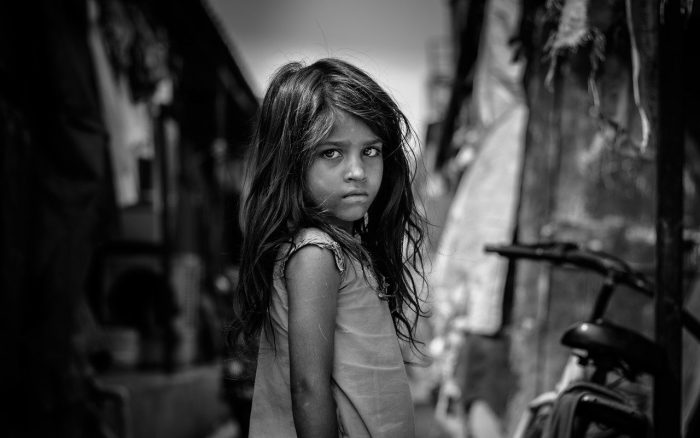The most common thing I hear from my clients is: “Nothing was really wrong with my childhood.”
And I actually do believe you. Bet you weren’t expecting that.
Now—quid pro quo—I need you to believe me. Because there is one thing I know: you did not land on this article for absolutely no reason at all.
Let’s address the elephant in the room. I’m not talking about trauma or abuse. I’m not suggesting in any way that your parents did not love you and want the best for you. I am not asking you to slam your parents. Not at all. I’ll get more into parents later—but this is about you.
All of us think we’re overreacting about how things were for us when we were kids. That other people had it much worse. So let that nugget go right now. This isn’t a competition. Take a breath—you’ve got every right to be right here, reading about this and I am so happy you are. This will be the start of something amazing for you.
So, what am I talking about?
Here are some things you may have noticed and never understood:
1. Feeling empty and like you really have no feelings.
You might feel like something isn’t right with you. You might realise that you don’t seem to feel all the emotions that other people do. You might say to yourself, “Why don’t I feel things?” or “Why do I feel empty?” That pit in the bottom of your tummy and the feeling in your head like your brain is trying to escape when there is the slightest hint of conflict.
2. Fear of needing other people.
People with Childhood Emotional Neglect don’t like to ask for emotional help. Or even help in any way. Hence my shelves and shelves of self-help books—for everything from fixing the toilet to fixing my hard, crusty heart.
We tend not to share anything that really matters to us. This is because we learned as kids, that when we did, we’d be rejected, or made to feel little or needy or stupid. I don’t know about you, but I would do anything to avoid feeling those things again. Feeling little and humiliated is sh*t.
3. Not much of an idea of who you are.
Pretty much a general lack of self-knowledge. By self-knowledge, I mean, what you like, what you don’t like. What you’re good at and not so good at (anything to do with balance and sport right here). Who you like and don’t like and why.
People might often say to you, “I feel like you’re just going along with what I want to eat/do/watch”—and this might confuse the heck out of you. It’s just become easy and natural to go along with what other people want.
If you’re not asked as a kid what you like and if you don’t feel that what you like is okay, you will just put it all on the back shelf.
I have missed some seriously good food and movies, eating and watching stuff I didn’t like. Plus, I annoyed the hell out of the people I was with. They wanted to eat some stuff I liked and feel like I was letting them in. They wanted to be a part of my world. Trouble is—I had no idea what planet I was actually on. Let alone what I liked or felt.
4. Being really tough on yourself and not with other people.
Most of the people I treat with Childhood Emotional Neglect (CEN) have tons of understanding for other people. Perhaps too much for other people. We’ll get to that. But—they are hard asses on themselves. They didn’t get enough emotional understanding from their parents. They tend to reject and tease and criticise themselves before other people can—even in therapy.
5. Feeling like there’s something really wrong with you as a person.
Imposter syndrome on steroids. You could even feel like other people are living in a different universe altogether.
Feeling that you have a fatal flaw will cause you to wall yourself off. You have a deep feeling that something is wrong with you. That you’re missing something that other people have. And, you will do every single thing you need to hide this flaw from other people.
And here is the bit that sucks: because you don’t actually know what the flaw is, you think it is just you as a person—everything about you. You’re the flaw.
It is such a crock of crap that your brain is telling you. There is no fatal flaw and there are people out there who’d love to know the real you. Truly. I would. Let’s start there.
6. A tendency to blame yourself for things, get angry at yourself, and carry around a lot of guilt and shame.
This is because you feel you should be happier, healthier, doing better, achieving more. You get my drift. If only you were better, thinner, prettier, brighter, shinier, more friendly (insert whatever mattered to the people who were around you when you were a kid).
7. Low emotional intelligence.
Now, this isn’t something anyone wants to hear, so I’m going to say right here that it isn’t a character flaw. This can be fixed and you can learn it. It isn’t anything that’s your fault. Not at all. It’s an inability to notice, name, tolerate, share, feel, and identify emotions.
You might know when you’re angry—but there are heaps of different shades of anger. Which leads me to the next step: you may have decided anger is bad. You might also have decided certain other emotions are “good” or “bad.”
But, emotions just are and the more you learn about them, the easier it is to express and deal with them. You skipped the training as a kid. You weren’t taught, and these are all skills that have to be taught and learnt. I’ll let you in on a secret: I actually used to hide in libraries and try and study which emotions were what. I even had to look up how long a hug should be—seriously.
You won’t have to read all those self-help and psychology books. Trust me. I’ve put my good money down and read them for you. Hours of walking the streets listening to audiobooks, while trying to eat sushi and hold my phone at the same time. All in the name of fixing a flaw none of us actually have.
8. You might have a fear that you don’t matter.
That you aren’t valid. That you aren’t enough. That you’re “less than.” This is because as a kid, you and your feelings were invalidated. Told they were wrong or didn’t matter. After this, it’s normal to feel less important than other people. And this is a kicker. We all want to matter. To someone. To be missed and treated as if we can contribute to other people. Even in a small way. Life is about connection—even for introverts like me. I fought it—but it’s true.
Childhood Emotional Neglect is what you didn’t have done for you.
~
 Share on bsky
Share on bsky





Read 4 comments and reply